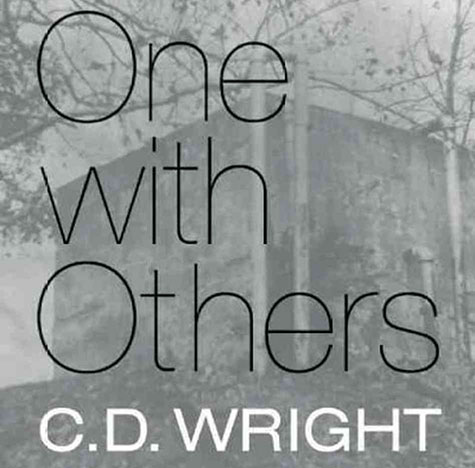
Al Green hailed from here;
Sonny Liston, 12th of 13 kids,
[some say 24th of 25]
born 17 miles west,
in Sand Slough. Head hardened
on hickory sticks. [And Scott Bond,
born a slave, became a millionaire.
Bought a drove of farms
around Big Tree. Planted potatoes…]
— from “[How far did a man have to walk just to pass his water, back then?]” in the collection “One With Others” (2010).

He was an unlikely leader. She was an unlikely follower.
In August 1969, just months after the murder of Martin Luther King Jr., an ex-convict named “Sweet Willie Wine” Watson led a four-day March Against Fear from West Memphis, Ark., to the State Capitol in Little Rock. Although trailed by police and confronted by angry mobs, Watson and his small band of unarmed “invaders” were joined by a single white person: Margaret Kaelin McHugh.
In “One With Others [a little book of her days],” acclaimed poet C.D. Wright — an Arkansas native who calls McHugh her mentor — explores the march and its explosive denouement with a poet’s ear, a journalist’s tenacity and a historian’s sense of scope.
On Thursday, Feb. 20, Wright will read from her work as part of The Writing Program’s spring Reading Series. The talk, which is free and open to the public, will begin at 8 p.m. in Hurst Lounge, Room 201, Duncker Hall.
A reception and book signing will immediately follow the reading. For more information, call 314-935-7428.
C.D. Wright
Wright, the Israel J. Kapstein Professor at Brown University, has published a dozen collections, including “String Light,” which won the Poetry Center Book Award, and “Rising, Falling, Hovering,” which won the International Griffin Prize.
“One With Others” received the 2010 National Book Critics Circle Award for poetry, The Lenore Marshall Award and was finalist for the National Book Award. “One Big Self: Prisoners of Louisiana,” her collaboration with photographer Deborah Luster, won the Dorothea Lange-Paul Taylor Prize.
“Like gasoline, C.D. Wright’s poems are charged by their own volatility,” writes Danniel Schoonebeek of PEN America. “The voices in her poems may break down or evaporate, but they leave behind their trace as the poems press onward.”
Publishers Weekly adds that, “Through juxtaposition and repetition, [Wright] weaves a compelling, disturbing, and often beautiful tapestry that at once questions the ability of language to get at the complicated truth of history (‘because the warp is everywhere’), and underscores the ethical imperative to try.”